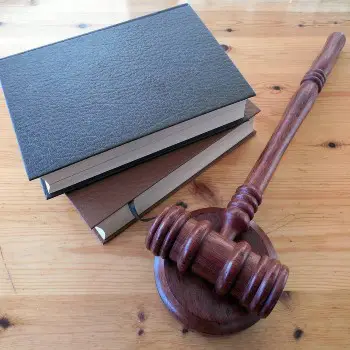
Every day, all across the state of New Jersey, normal people head to work in their vehicles, or walk to a local bus stop, or even make their way to their doctor's office for routine care and treatment.
Common across all of these is the fact that at no point did any of these individuals likely believe that their health and safety were at risk.
Tragically, also similar in all of those instances is the fact that individuals just like them can often become victims of injuries due to negligence. Drivers are involved in accidents, commuters may encounter an improperly maintained sidewalk and trip, and patients can be subject to medical malpractice.
Soon after their injuries occur, individuals tend to be completely concentrated on recovering and returning to their normal lives and routines. It is a rarity that an injury victim thinks of pursuing legal action with an NJ personal injury lawyer as their first option. Yet, it may be the only way for them to be able to get back on their feet.
And yet, the time limit to file an injury lawsuit in the state of New Jersey is quite limited. So, if you've ever asked yourself, "how long do I have to sue someone for injury?" keep reading as we discuss the answer below.
All states set their own laws as to how long a victim has to bring forth a lawsuit for any particular civil matter.
It is true that some times these limits are extended after the fact via new legislation but, for the most part, once that predetermined amount of time has elapsed, victims will have no avenues for obtaining compensation no matter how strong of a case they may have or how good their PI lawyer is.
For this reason, after suffering any kind of physical trauma in an accident, we confidently recommend discussing your case with one of our legal representatives as soon as you are mentally and physically able to do so. Our team offers free, no-obligation consultations, which means getting the info you need regarding your options requires only your time, which you can trust our team to value as highly as their own.
You may be thinking that setting a time limit within which victims of injuries must officially file a claim is unfair; indeed, it can take a long time for a victim to find out that they could be compensated, or to learn that a seemingly simple injury could evolve into a lifetime of medical treatment.
While it is true that statutes of limitation have prevented potentially millions of victims from pursuing justice, the legal system is set up so as to protect both the plaintiffs and the defendants.
Consider that with the passing of time, critical evidence can be lost, and facts can become muddled. If a defendant has to engage in a lengthy legal battle over incidents that occurred decades ago, it would be unfair to them as well.
As a result, and with the above in mind, the legal code of New Jersey looks to establish a fair playing field for both parties by limiting the amount of time in which claims can be considered by a court of law.
If you are intending to file a lawsuit in New Jersey after suffering injuries due to another's negligence, it will have to be done no later than two years after the incident in question.
This 2-year limit applies to most cases that fall under personal injury law, but as with many aspects of the law, there are some exceptions. Here are a couple of the most common ones:
While the "2-year rule" may seem quite broad in its scope of personal injury claims, the exceptions presented on this page should serve to demonstrate how possibilities may still exist for you to be compensated for your trauma.
Contact our team today for an in-depth legal analysis of your case and to finally get the closure you need after falling victim to another's negligence.
Additional Resources
If you'd like to continue browsing our legal resources, click through to our latest page: What Qualifies For Compensation In Personal Accident Claims In New Jersey?